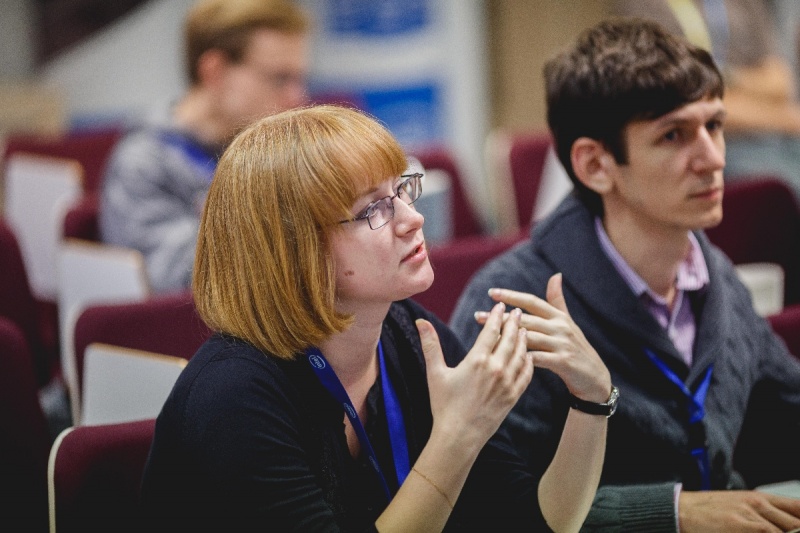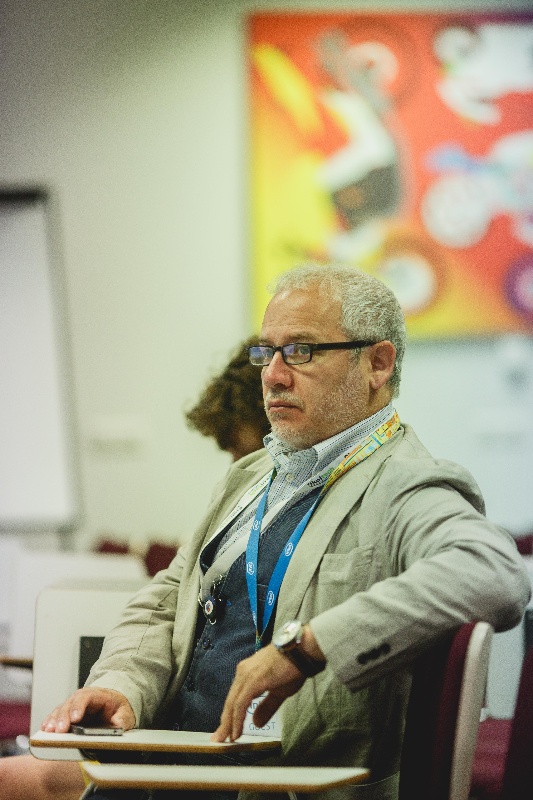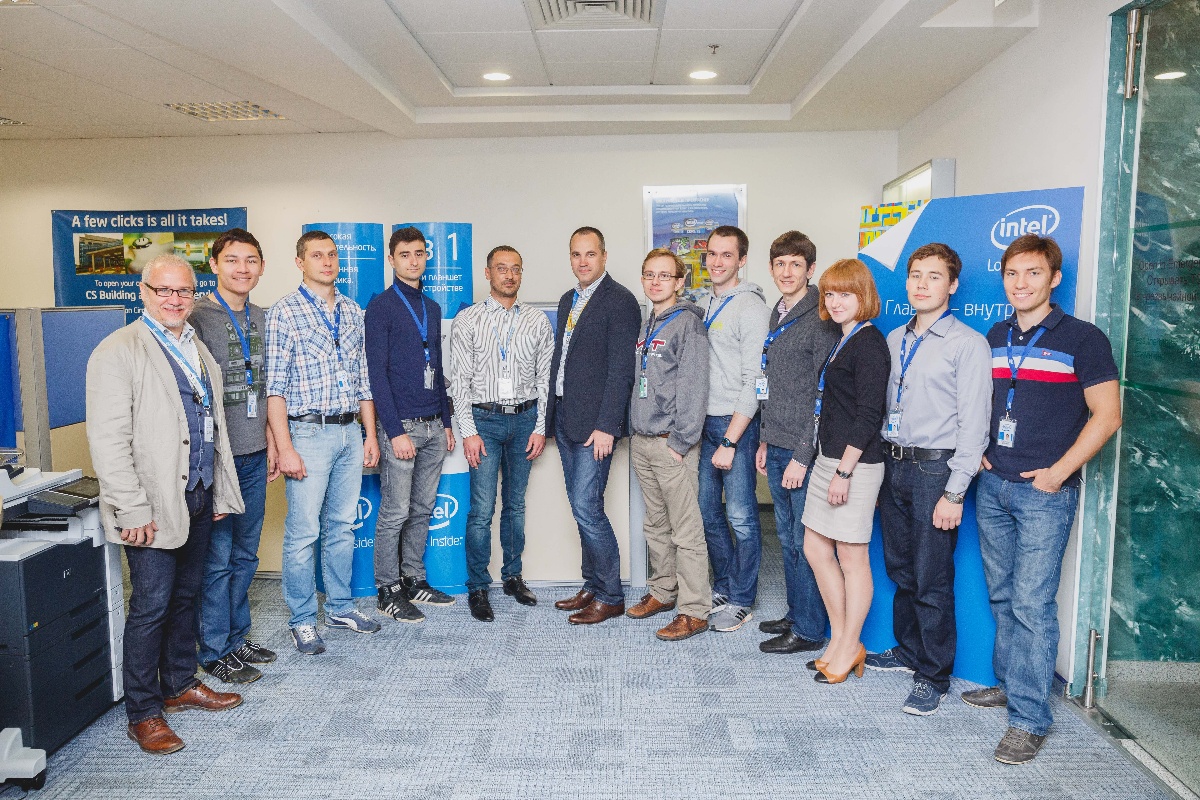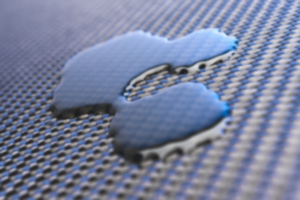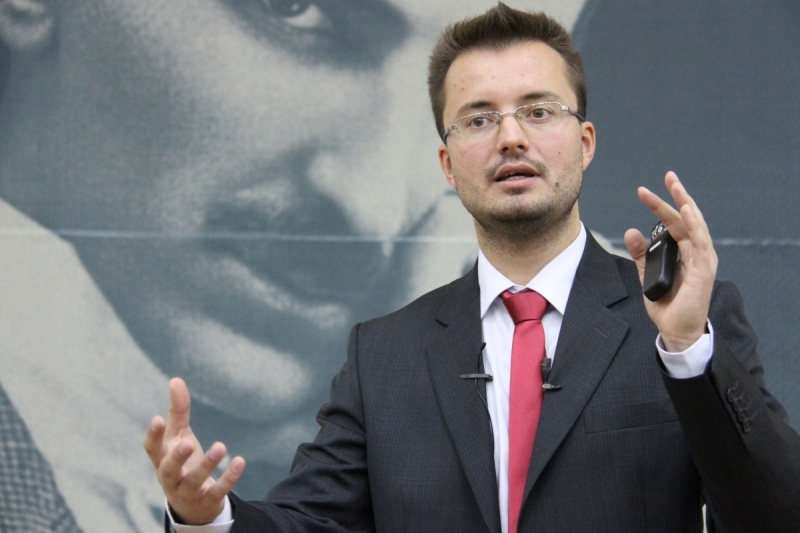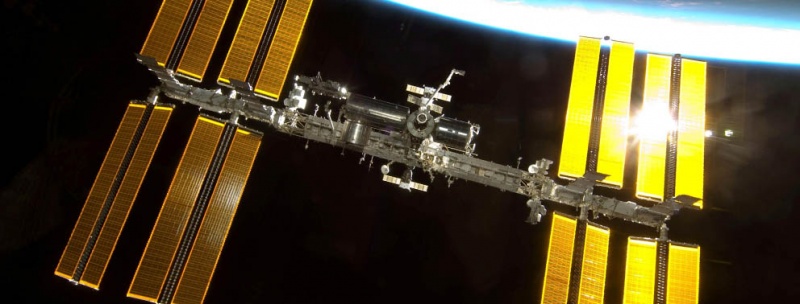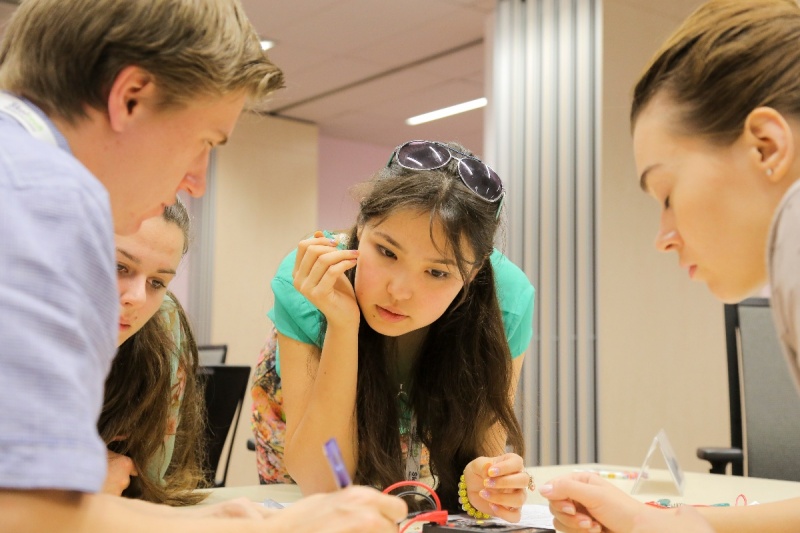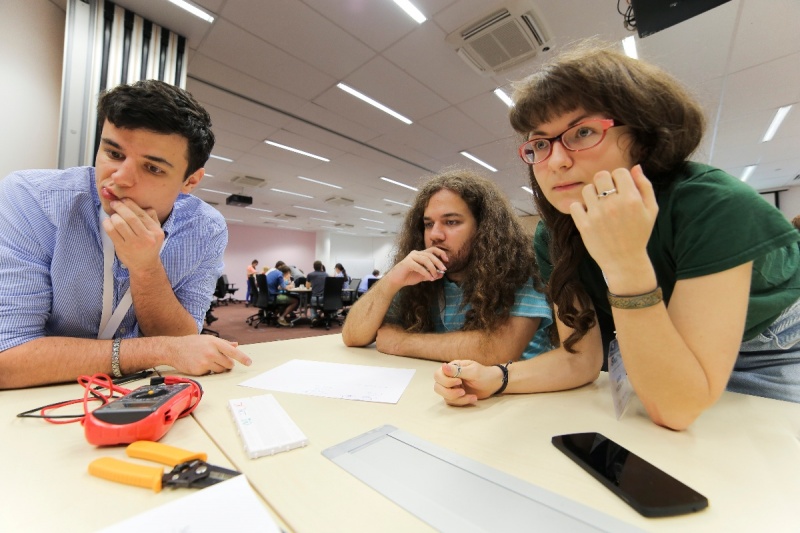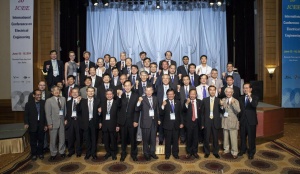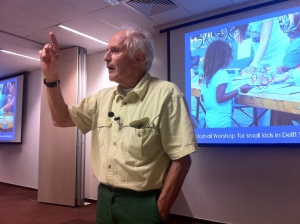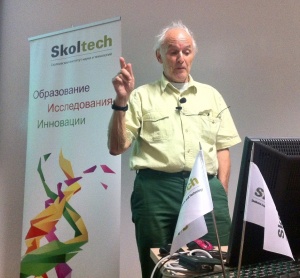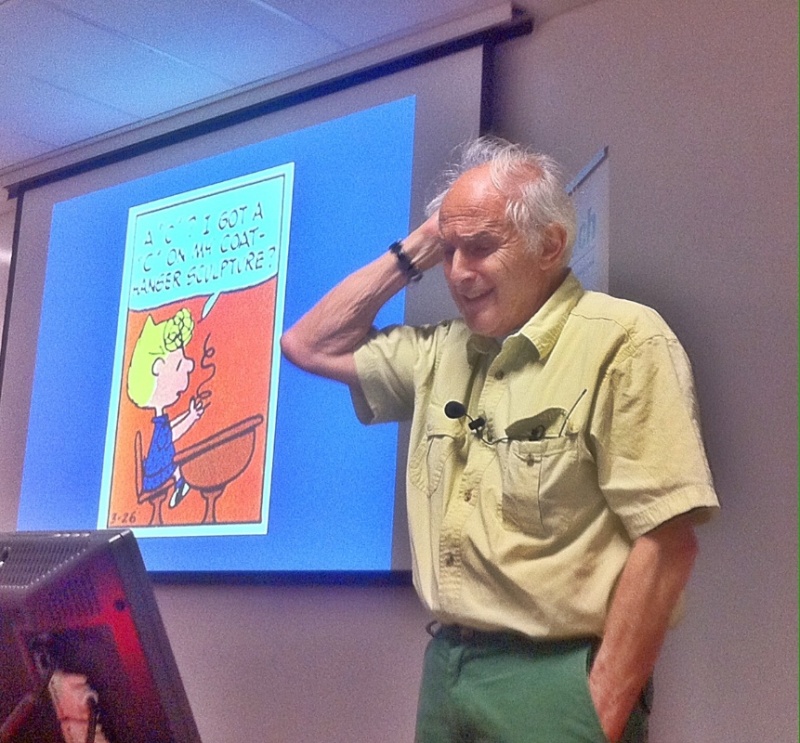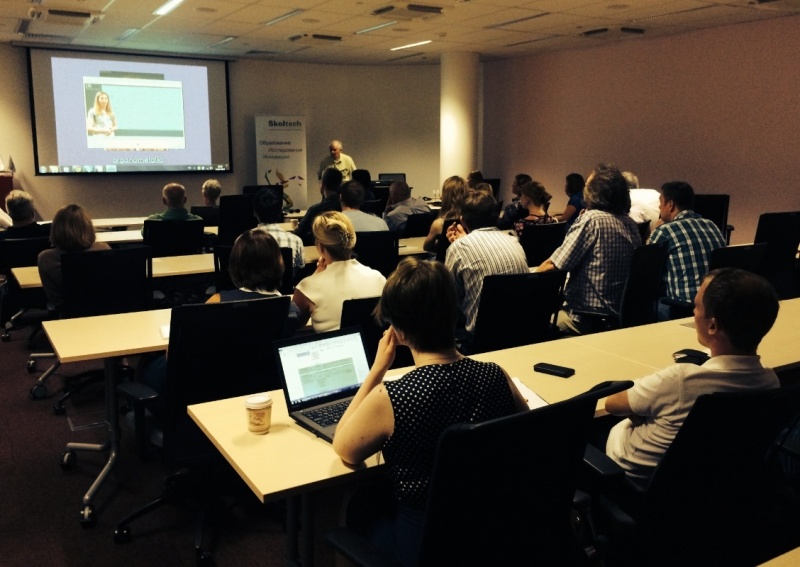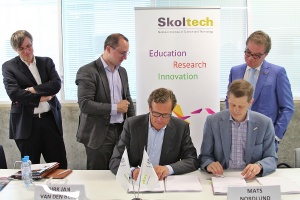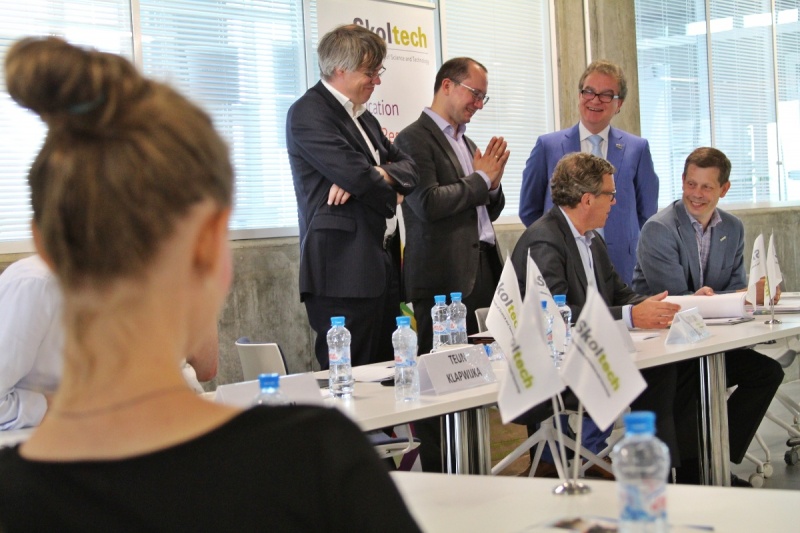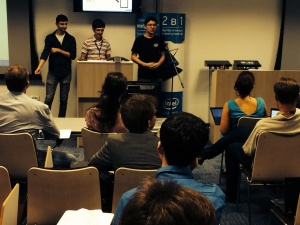
Vahe Tahmazyan and teammates Almir Dzhumaev and Alexander Vidiborskyi present their project at Intel
This summer Intel Russia has become the first company to take in a group of Skoltech students for a two-month long internship. Eleven IT and Energy Masters students worked in teams, and helped develop projects of strategic importance for the international giant: prototypes for smart appliances, the internet of things, information security in virtual environments, and the use of Simics as smart grid simulators. The pilot project was held as part of Skoltech’s Industry Immersion Program, whose overall aim is to bring together opportunities and experiences. Under the program, students apply their knowledge and become skilled high-tech professionals, well positioned to launch their careers or start their own business. Companies gain access to the university’s talent pool. Everybody wins.
When the internship kicked off in late June with tasks assigned to teams of students, participants were unsure what to expect. “I was lucky to be part of a team which developed software for an intelligent fridge”, says IT student Vahe Tahmazyan. “My teammates s and I contributed a humble yet significant part to the development of a huge corporation. And the Intel employees trusted our decision-making process. It’s always nice to get a vote of confidence.”
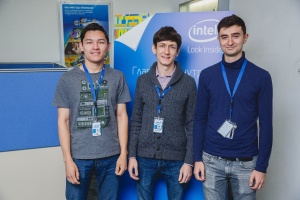
All smiles: from left, Skoltech students Almir Dzhumaev, Alexander Vidiborskyi and Vahe Tahmazyan at Intel Russia.
Maxim Kiselev, Director of Leadership Programs for Skoltech: “I am pleased that our partnership pilot program was that successful. We worked hard on creating a real world experience at Intel. We look forward to a future of cooperation. It actually starts right now.”
As for the company, Igor Kaloshin, General Director for Intel Software notes that ”this was one of those rare cases, when students demonstrate a high technical level, but also excellent business and leadership skills.
“We’ve been holding Intel’s summer internships for 15 years. During that time, 520 students from different parts of Russia undertook training programs. More than 100 graduates have become Intel employees, and the rest gained a unique experience and knowledge working in the IT field.
“Intel is constantly looking for new opportunities to develop this program. Specifically we’re interested in tech entrepreneurship. The cooperation with Skoltech was the first time we managed to combine high quality business leadership with good problem-solving skills. This forms the basis for our collaboration.”
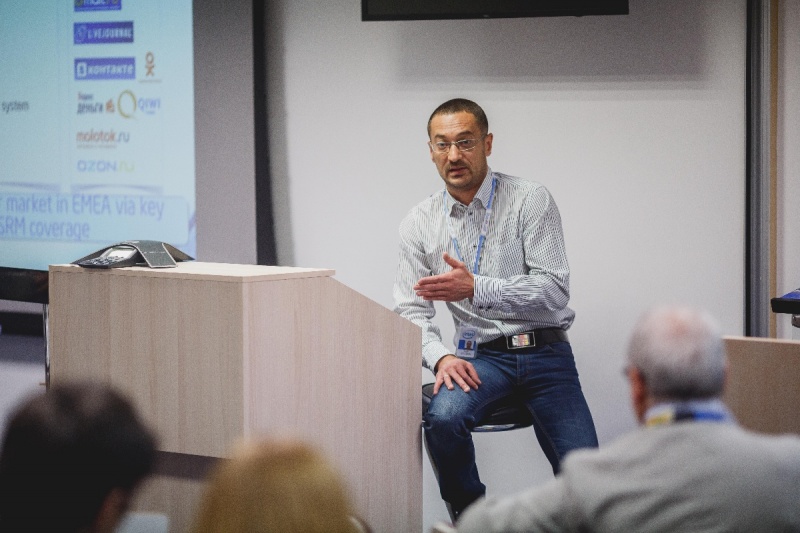
Igor Kaloshin, General Director of Intel Software: “This was one of those rare cases, when students demonstrate a high technical level, but also excellent business and leadership skills.”
